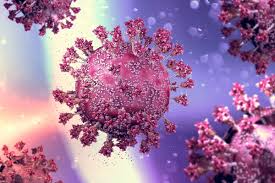10 April 2025 | Thursday | News

Picture Courtesy | Public Domain
Long COVID or post COVID-19 syndrome, is a clinical entity observed in certain patients wherein symptoms of illness persist for at least several weeks or months after Covid19 infection. While the etiology of this clinical entity is not fully understood, it is likely that multiple pathologies contribute such as permanent organ damage, persistent inflammation and other immune manifestations. A study headed by researchers at the Applied Biomedical Science Institute and collaborators have uncovered a region of the SARS-CoV-2 virus spike protein that induces potentially pathogenic autoantibodies in mice. This immunogenic linear peptide region is targeted by autoantibodies typically associated with Systemic Lupus Erythematosus (SLE) and other autoimmune diseases, and as such is reminiscent of similar self-reactive regions within the HIV-1 virus spike. They also found this region to be highly immunogenic, as has been observed in previous studies of SARS-CoV-2-infected humans even as linear peptides. While these preliminary studies in mice will need to be validated in human studies, many of the self-antigens these autoantibodies target are highly conserved across species including humans. Therefore, these studies imply research priority should be placed in determining if high levels of these autoantibodies contribute to the Long COVID clinical entity following infection. Other highly conserved, non-autoantibody inducing regions in the Spike were detected in this study that may be more desirable to explore as potential pancoronavirus therapeutic or vaccine targets.
© 2026 Biopharma Boardroom. All Rights Reserved.